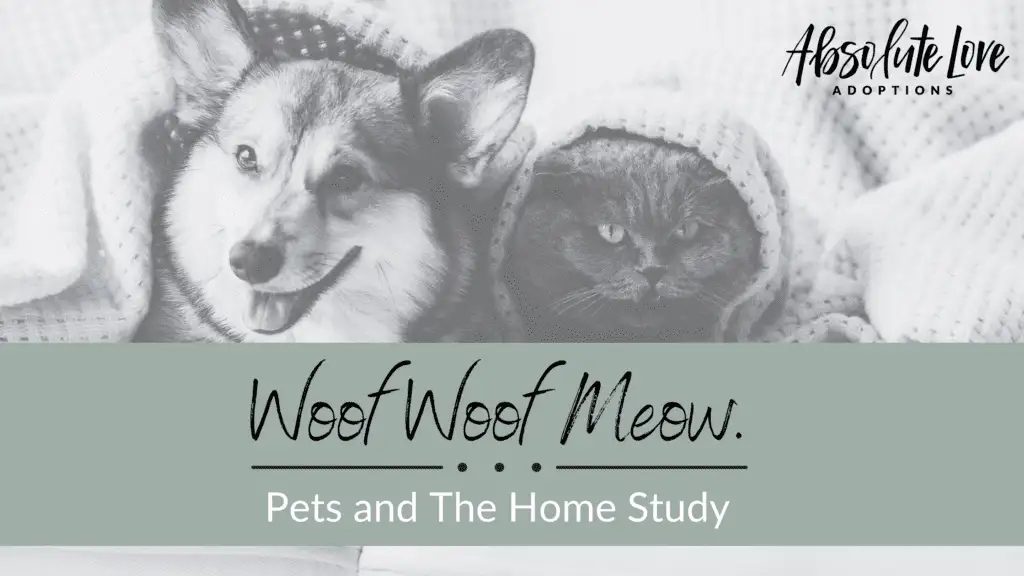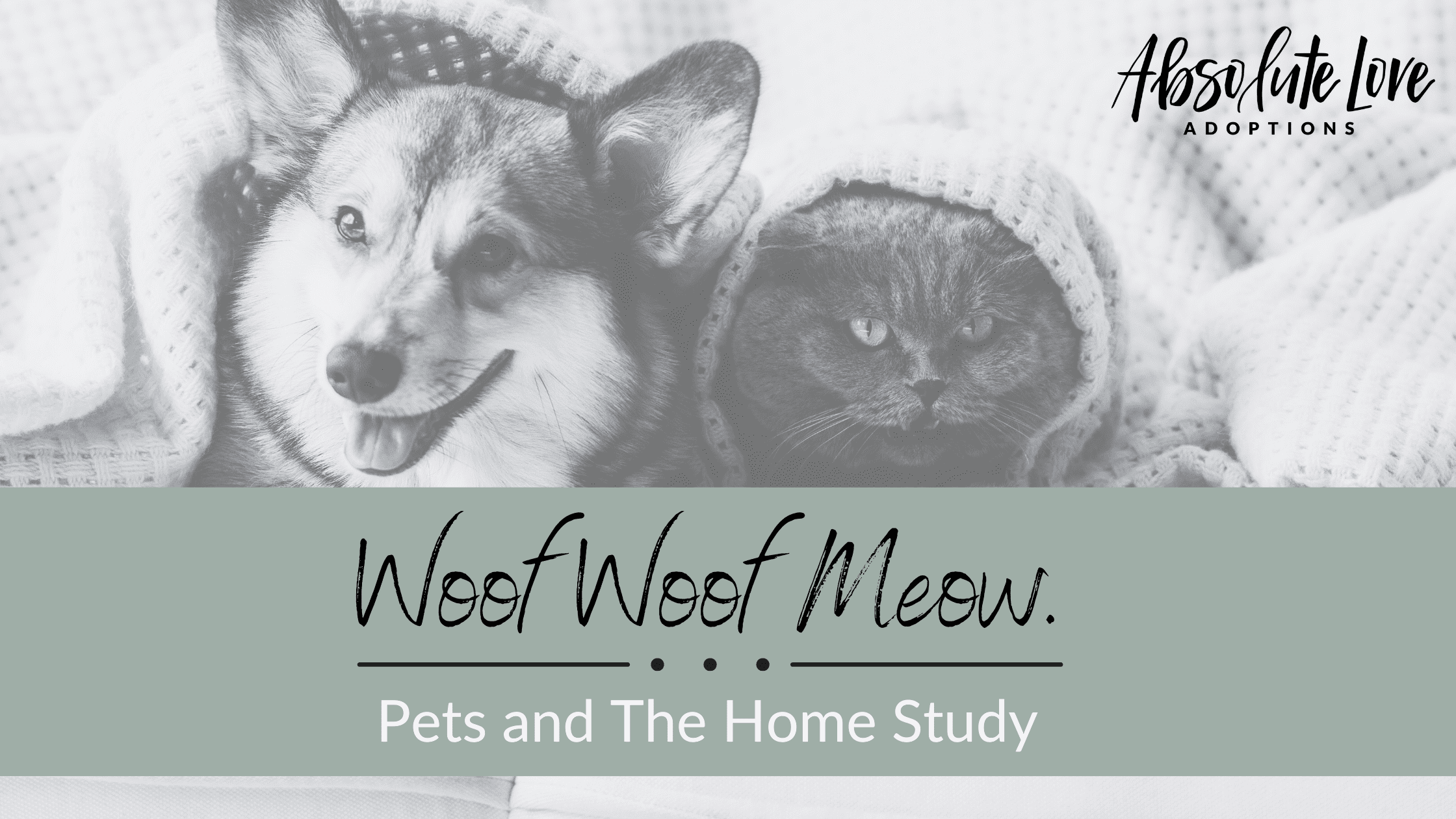Approximately 65.1 million household in America own dogs as pets, and 42.7 million of them own cats.
If you are pursuing adoption, it is likely that you have a dog, or cat, or both! (Or maybe other animals!)

During a home study, your social worker will ask questions about your pets so that they can ensure your pets do not present a danger to your children.
Most states lack language in their adoption regulations that cover pets. Therefore, your home study provider or agency will likely have their own regulations.
Absolute Love requests that families provide vaccination records for each pet. At minimum, they must have proof of current rabies vaccines as Pennsylvania requires all household pets to have rabies vaccinations. Ideally your dog is fully vetted and current on all recommended vaccinations.
We also ask that you fill out a pet inventory and safety form.
(View our form here Pet Safety Plan and Inventory (1))
We want to know each pet’s breed and age, how they came to be yours (rescue, stray, breeder, etc), any health conditions or medications/treatments and temperament.
We will also ask about when and how your pets are exercised. A bored pet is often getting into trouble and we want to know that you provide them with the attention and the exercise required for them. Note: certain breeds of dog are more active and require more exercise and stimulation.

How many is too many?
As long as your pets are cared for, you can have as many pets as you would like. Pet behavior is influenced by a pack, and your challenges with adjusting to a child in the home may be increased with multiple pets.
How a child changes pets:
Often when a child enters the home, the family interest in the pets declines, even if just briefly. They become second to the child, which can be challenging for them. They are also adjusting to increased noise, new smells and a shift in the energy in the home.
Some pets respond by retreating, whereas others become more demanding.
We want you to have the tools to support your pets so that the transition to a home with children is as smooth as possible. Should your pet struggle with the transition, we want to know that you’ve considered a back-up plan.
We provide this resource from the American Kennel Club to ensure you understand signs and symptoms of anxiety in dogs and this resource from The American Humane Society about cat stress. We want to know who would consider taking the pet if they cannot be supported in the home.
Ultimately, pets are animals and are unpredictable. Any pet can have an uncharacteristic response during times of stress.
We want you to have happy pets and a happy child comes home!





